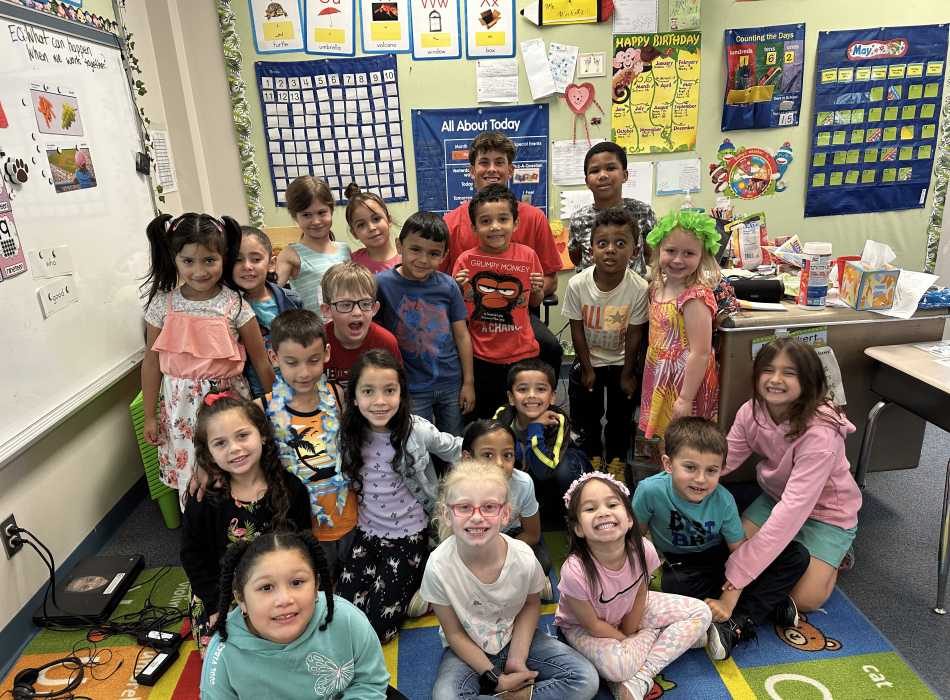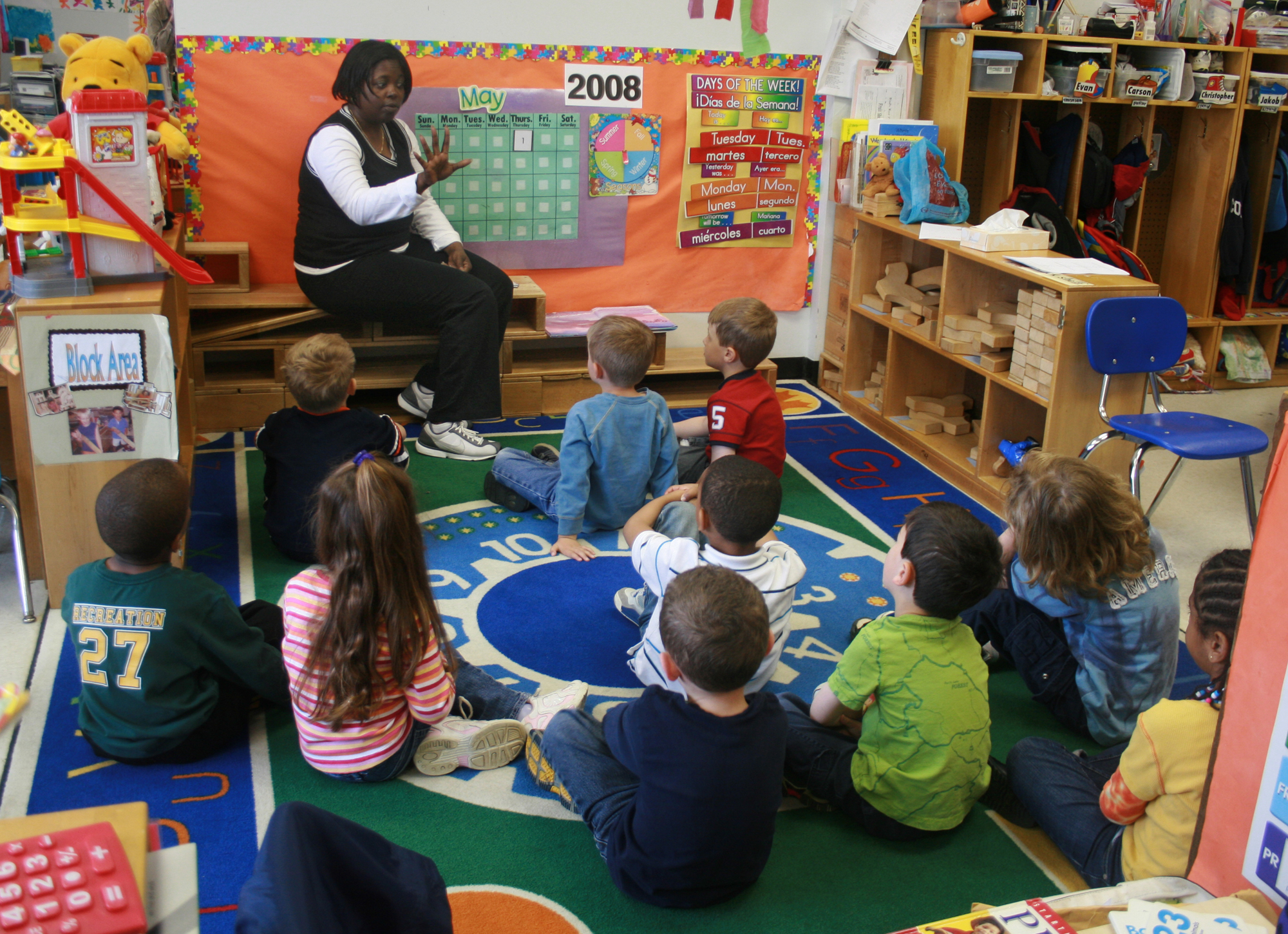Preparing your child for Kindergarten: tips for success
Wiki Article
The Important Duty of Kindergarten in Child Advancement: Truths and Insights for Parents
Kindergarten serves as a critical structure for child advancement. It uses organized very early knowing experiences that significantly affect cognitive, social, and psychological growth. Kids participate in tasks that enhance language abilities and essential thinking while also learning to browse social interactions. Comprehending the influence of this formative stage is essential for moms and dads. What certain advantages does kindergarten provide, and how can moms and dads best sustain their kids during this crucial time?The Importance of Early Understanding Experiences
Many may underestimate the significance of early discovering experiences, they play a vital duty in shaping a youngster's cognitive, social, and psychological growth. During these developmental years, children engage with their setting, acquiring language abilities and fundamental expertise that set the phase for future understanding. Exposure to varied understanding activities fosters important reasoning, creative thinking, and problem-solving capabilities.Additionally, very early learning experiences help children create self-regulation and resilience, furnishing them to face obstacles ahead. Participation in structured understanding settings motivates interest and expedition, essential attributes for academic success. These experiences likewise present children to routines and assumptions, advertising a complacency and belonging.
Study has actually shown that quality early education and learning can substantially affect lasting educational end results, decreasing the possibility of learning problems. By stressing the value of very early learning, moms and dads and teachers can much better support youngsters within their complete possibility, inevitably adding to their total well-being and future success.
Building Social Abilities and Relationships
Structure social abilities and developing friendships are crucial elements of a youngster's advancement that usually arise from early knowing experiences. In kindergarten, kids take part in different activities that advertise teamwork, interaction, and interaction. They learn to share, take turns, and comply, which are foundational abilities for building relationships.Structured play and group projects motivate children to browse social characteristics, promoting an understanding of various perspectives and the significance of empathy. As they engage with peers, they practice problem resolution and create settlement skills, crucial for keeping friendships.
Moreover, these early social interactions assist children cultivate a feeling of belonging and community, which is important for their overall wellness. By developing links with schoolmates, children not only improve their social skills yet also obtain confidence in their ability to associate with others. Subsequently, preschool serves as an important system for nurturing social development and friendship-building.
Developing Psychological Intelligence
Just how do young kids begin to recognize their very own emotions and those of others? In the kindergarten setting, kids participate in numerous activities that promote emotional knowledge. Via group, storytelling, and play conversations, they learn to determine and label their feelings. Educators usually introduce ideas such as compassion by motivating youngsters to review just how others could really feel in various circumstances.Role-playing workouts permit youngsters visit this website to exercise recognizing psychological hints, cultivating an understanding of social characteristics. In addition, directed conversations concerning dispute resolution help them browse their psychological reactions and develop dealing methods. By communicating with peers in organized atmospheres, youngsters get understandings right into the emotional landscape of their classmates, which boosts their ability to create meaningful partnerships.
Ultimately, kindergarten serves as an essential system for nurturing emotional knowledge, equipping youngsters with important abilities for future social communications and emotional well-being.
Cultivating Independence and Confidence
In the kindergarten atmosphere, youngsters not just enhance their emotional intelligence yet additionally begin to cultivate freedom and positive self-image. This important developmental phase permits youngsters to make options, resolve problems, and take responsibility for their activities. Participating in tasks that promote autonomy, such as picking their own jobs or joining group jobs, assists youngsters find out to trust their judgment and capacities.As they navigate social interactions, children acquire self-confidence in sharing their emotions and thoughts. Private School. Inspiration from peers and educators fosters a sense of belonging, additionally enhancing self-esteem. Tasks that need synergy and collaboration additionally show kids to value their contributions, reinforcing their sense of proficiency
Planning For Future Academic Success
As kids take part in structured discovering experiences throughout preschool, they lay a vital foundation for future scholastic success. This very early educational stage introduces essential skills such as literacy and numeracy, improving cognitive advancement and cultivating a love for learning. Via interactive activities, kids find out to comply with instructions, work collaboratively, and resolve troubles, all of which are essential in greater scholastic setups.Kindergarten nurtures social-emotional skills, making it possible for kids to handle their feelings, develop empathy, and construct connections with peers. These abilities add substantially to a favorable class environment and effective understanding.
Study suggests that youngsters who thrive in preschool are most likely to execute well in later qualities, showing the long-term impact of very early education. Parents play a considerable role in supporting their youngster's kindergarten experience by enhancing knowing at home and encouraging inquisitiveness, thus preparing them for a successful scholastic trip in advance.
Often Asked Concerns

What Should I Look for in a Great Kindergarten Program?
An excellent preschool program ought to stress play-based discovering, certified instructors, a safe environment, a well balanced educational program, chances for social communication, and adult involvement. Reviewing these variables ensures a nurturing room for youngsters's early growth and development.How Can I Help My Kid Transition to Preschool?

What Prevail Difficulties Kid Face in Kindergarten?
Typical obstacles kids encounter in kindergarten consist of splitting up stress and anxiety, difficulty adjusting to organized routines, social skills advancement, and handling new relationships. These issues can affect their total adjustment and finding out experiences during this essential change period.Just How Can Moms And Dads Support Preschool Learning at Home?
Parents can support preschool learning at home by supplying an organized regimen, participating in interactive reading, urging innovative play, using instructional video games, and promoting open communication about institution experiences to enhance learning and build self-confidence.What Is the Typical Daily Schedule in Kindergarten?
A regular day-to-day timetable in kindergarten consists of morning circle time, organized learning activities, treat breaks, playtime, and tale sessions, all designed to foster social abilities, creativity, and fundamental scholastic ideas essential for very early development.In the preschool setting, kids engage in various tasks that promote psychological intelligence. As youngsters engage in structured discovering experiences throughout kindergarten, they lay a necessary structure for future scholastic success. Preschool supports social-emotional abilities, allowing youngsters to manage their feelings, develop compassion, and build partnerships with dig this peers. Research study suggests that youngsters who grow in kindergarten are a lot more likely to carry out well in later qualities, showing the lasting effect of very early education and learning. Typical difficulties youngsters face in kindergarten consist of splitting up anxiety, difficulty adapting to organized regimens, social abilities development, and taking care of new relationships.
Report this wiki page